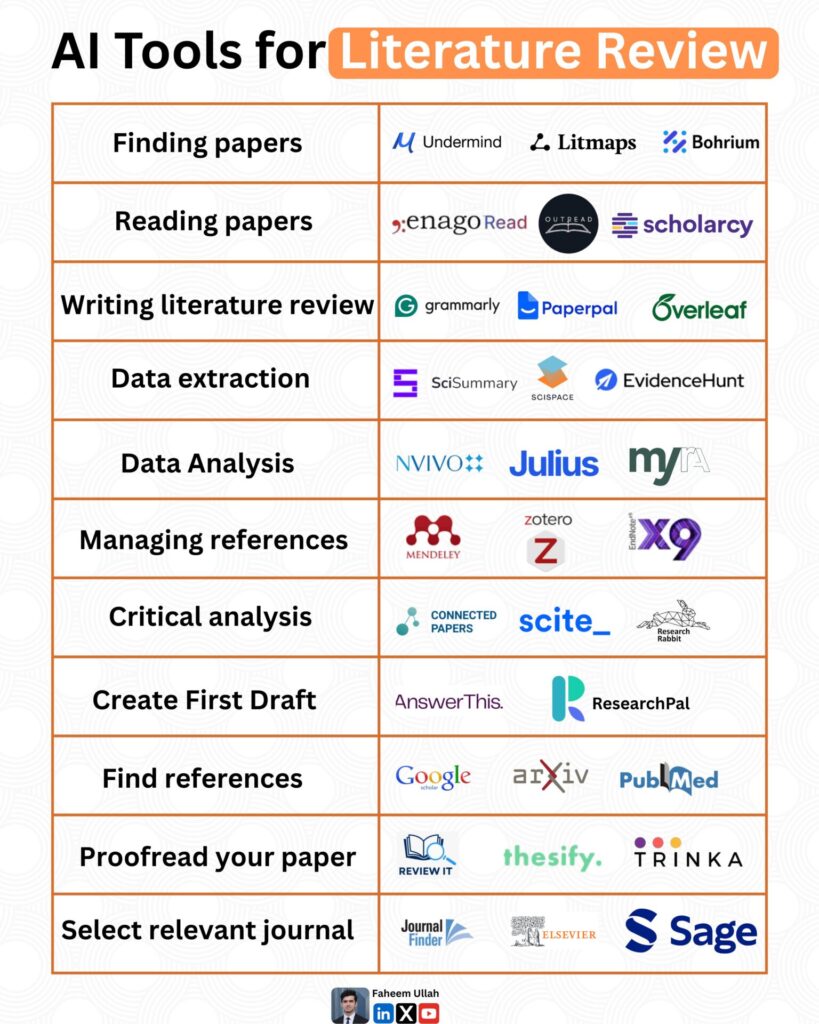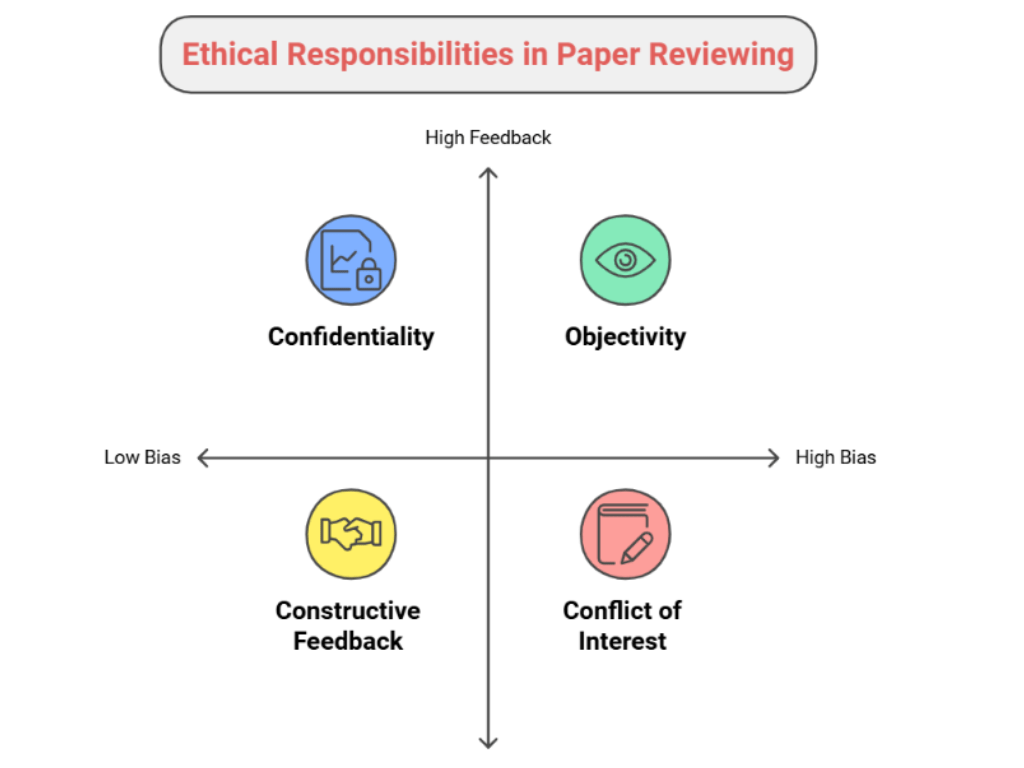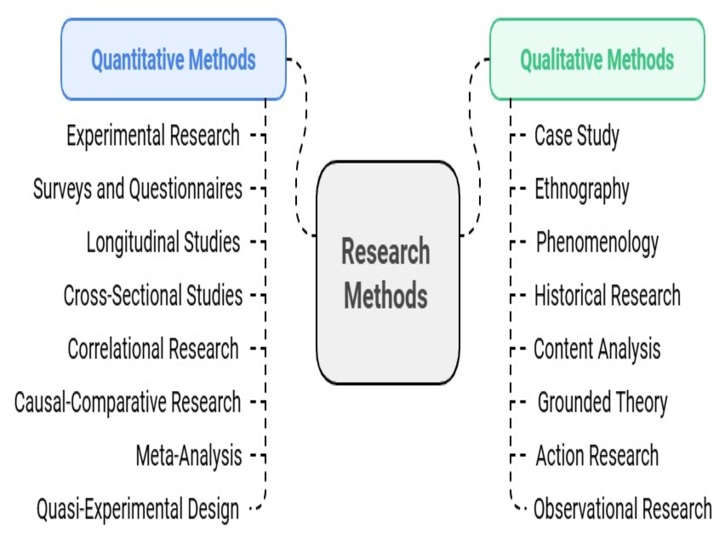
Literature review is one of the most important parts of your research. But it can also be the most time-consuming.
The good news? AI tools can save you time, improve your writing, and help you stay focused.
Here are 11 types of AI tools you can use to simplify your literature review.

1. Finding Papers
Bohrium: Helps you discover papers using topic-specific queries.
Litmaps: Creates a map of connected papers visually.
Undermind: Suggests relevant papers based on your input.
2. Reading Papers
Outread: Makes paper reading faster and more interactive.
Enago (Crimson Interactive): Summarizes and explains papers in simple words.
Scholarcy: Extracts key points and reference summaries from long papers.
Do you want to analyse data in seconds?
Try MyRA – www.myraresearch.com
This tool analyses the following data.
- Interview transcripts
- Observational notes
- Textual responses
- Reports
3. Writing the Literature Review
Paperpal: Improves your writing quality with grammar and style suggestions.
Grammarly: Fixes grammar, tone, and clarity in your writing.
Overleaf: A LaTeX-based editor perfect for formatting research documents.
4. Data Extraction from Papers
SciSummary: Gives you quick summaries of research articles.
SciSpace: Lets you chat with a research paper and ask questions.
EvidenceHunt: Extracts and ranks insights from evidence-based studies.
5. Data Analysis
NVivo: Used for coding and analyzing qualitative data.
Julius AI: Automates charts, statistics, and testing from your dataset.
MyRA: Analyzes interview or survey data and gives structured reports.
6. Managing References
Mendeley (Elsevier): Saves, organizes, and cites your references easily.
Zotero: A free reference manager with browser integration.
EndNote: Ideal for large projects with complex citation needs.
7. Critical Analysis of Papers
Connected Papers: Visualizes relationships between key studies.
Scite: Shows how a paper has been cited (support, contrast, or mention).
ResearchRabbit: Helps you follow authors, trends, and research networks.
8. Create First Draft
AnswerThis: Helps you generate content using your research question.
ResearchPal: Produces an early draft of your literature review.
Google Docs: Use AI plugins to co-write and edit collaboratively.
9. Find References
Google Scholar: A go-to search engine for academic papers.
arXiv: Access free and latest preprints in science and tech.
PubMed: Ideal for medical and life sciences literature.
10. Proofread Your Paper
Review-it: Gives detailed feedback on structure, content, and quality.
Thesify SA: Helps improve academic tone and clarity.
Trinka.ai: Designed for research writing and technical language.
11. Select Relevant Journal
Journal Finder: Suggests journals based on your abstract or title.
Elsevier Journal Recommender: Finds Elsevier journals that match your research.
SAGE: Helps find journals published by SAGE.
Final Tip:
Start small. Pick one tool from each category and try it out. Mix and match tools until you find the right workflow for your research style.
Don’t forget to read: Literature Review Steps





Dr. Faheem, your advice makes me always strong, gives me an opportunity to look ahead in order to pave my PhD research journey in advance and also I've made it as a daily principle for better success. Thank you so much.